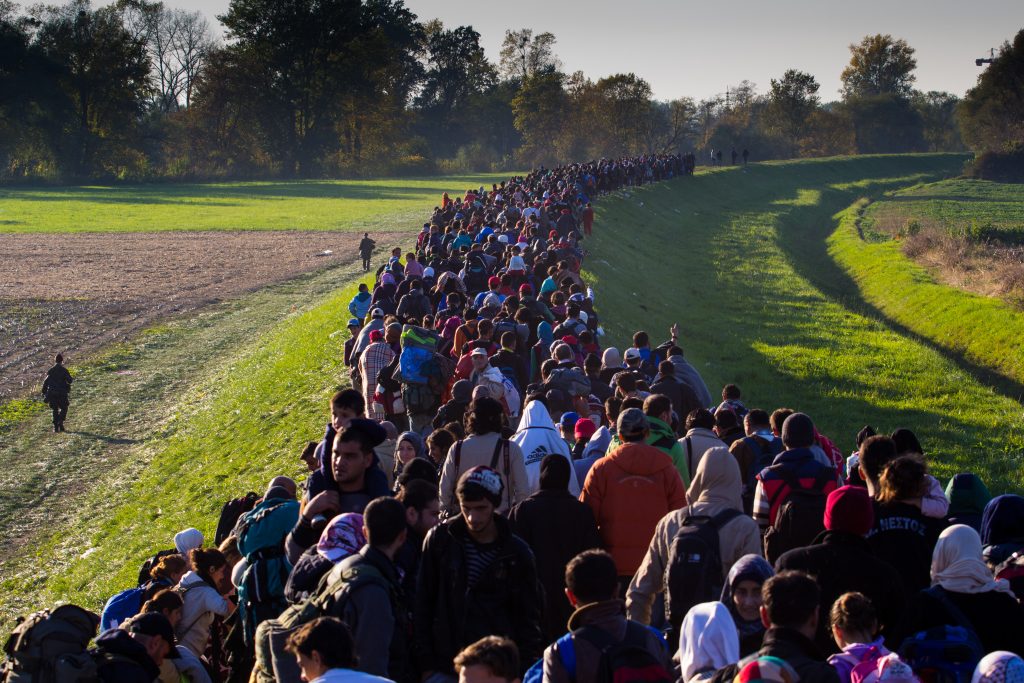
By Professor Stephen A. Matlin, Visiting Professor, Institute of Global Health Innovation, Imperial College London
The 2001 UN General Assembly Resolution proclaiming 18 December each year as International Migrants Day recalls the obligation to respect the rights of all individuals as set out in the 1948 Universal Declaration of Human Rights. It invites Member States and intergovernmental and non-governmental organisations to observe the day by providing information on the human rights and fundamental freedoms of migrants, sharing experiences and designing actions to ensure their protection, among a myriad of other activities.
However, in the face of hostility to migration among some sections of civil society, the media and political groups, the occasion is likely to be marked by little if any visible observance. And the blanket of silence will cover the reality that the right to health is one that is often extensively breached in the treatment of migrants in many places.
Tentative treatment
The term ‘migrant’ describes any person who moves from one place to another to live, temporarily or permanently, for any reason. The way that migrants are treated – in general and especially regarding access to health services – depends on many factors. This includes whether or not they are ‘documented’ (satisfying all the legal requirements to enter, stay and, if applicable, hold employment in the country of destination) and how the country of destination distinguishes the rights of citizens and documented and undocumented migrants in different categories.
Refugees are a particular sub-set of migrants who are given special recognition by international agreements to which most countries are signatories. They include people who have been displaced by natural disasters or by conflict or oppression that has forced them to flee their homes in fear of their personal safety. These individuals are granted special status in a range of international conventions and protocols that are intended to guarantee sanctuary, assistance and fair treatment in the country of destination.
A harsh reality
On the ground, the reality for migrants, refugees and asylum seekers is often one of de facto exclusion. Those with documentation may encounter prejudice, discrimination and discouragement at the hands of health and social service providers who are not sympathetic to their position or sensitive to their needs. And those without documentation or confirmed status may be reluctant to access services for fear of being reported to authorities. They may be too traumatised to be able to seek the help they need, or excluded from adequate treatment if they do present themselves for assistance. Women and children are especially vulnerable.
In many EU member states, undocumented migrants’ entitlements to health services are restricted as a matter of policy, in order “to discourage the entry of new migrants”. In 2010, in nine of the 27 EU countries even emergency health care services were inaccessible for undocumented migrants. Just five countries afforded them access to health services beyond emergency care and only four (the Netherlands, France, Portugal and Spain) gave them entitlement to access the same range of services as nationals of that country.
A growing global issue
In recent years there have been massive increases in the numbers of migrants and refugees. The period 2014-15 witnessed the largest and most rapid escalation ever in the number of people being forced from their homes, creating the highest level of displacement since World War II. In 2016, UN Secretary-General Ban Ki-moon wrote that “this is not a crisis of numbers; it is a crisis of solidarity. Almost 90 per cent of the world’s refugees are hosted in developing countries. Eight countries host more than half the world’s refugees. Just ten countries provide 75 per cent of the UN’s budget to ease and resolve their plight.”
That year, for the first time the UN General Assembly hosted a High-Level Summit to address large movements of refugees and migrants. 193 Member States signed up to the New York Declaration for Refugees and Migrants, expressing the political will of world leaders to save lives, protect rights and share responsibility on a global scale.
There is also the major challenge of addressing their health needs, which was the focus of the Institute of Global Health Innovation’s Global Health Forum in December 2017. This issue was also highlighted in a publication I co-authored this year, which reviewed the field and points towards an agenda of solutions, such as better education, the training of health professionals and greater international collaboration.
Reflection and action
Today, International Migrants Day, offers a rallying point for everyone across the world who is concerned with the protection of migrants. It is an important opportunity to take stock of how far the governments of the world are living up to their commitments, and what civil society is doing to encourage them and hold them to account.